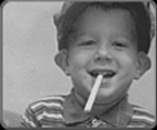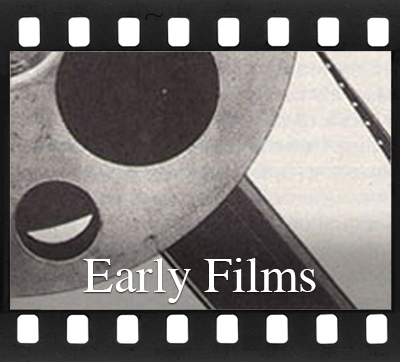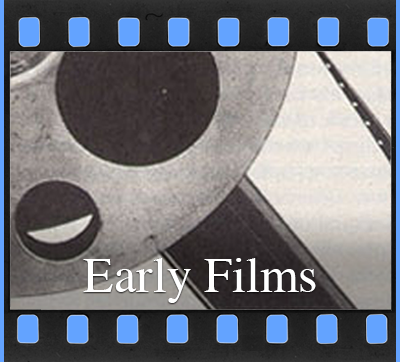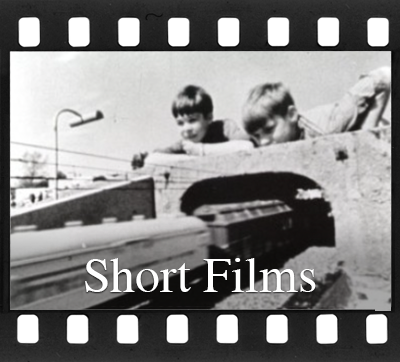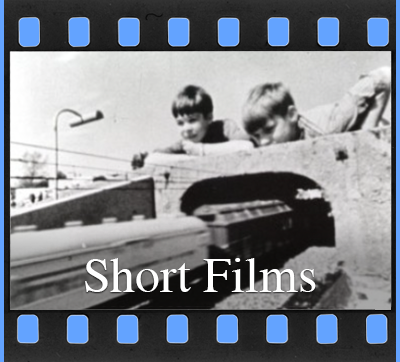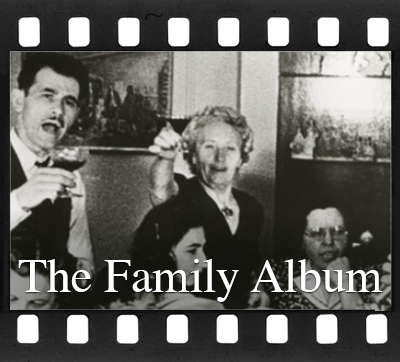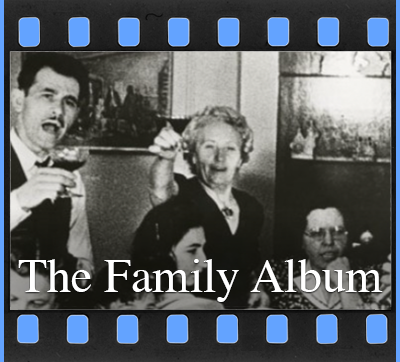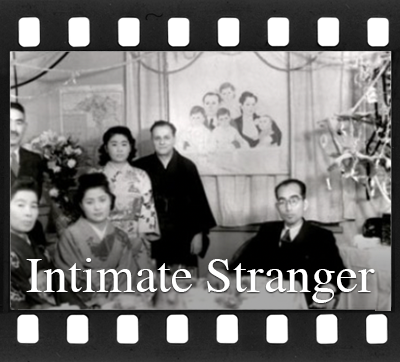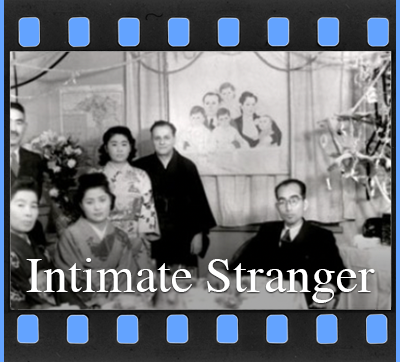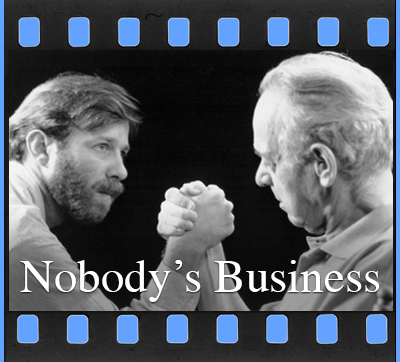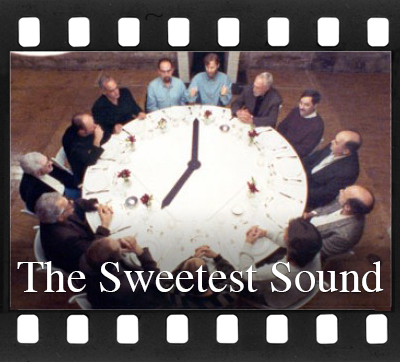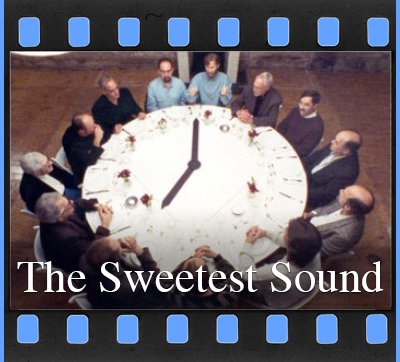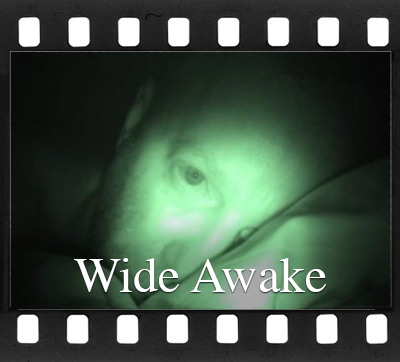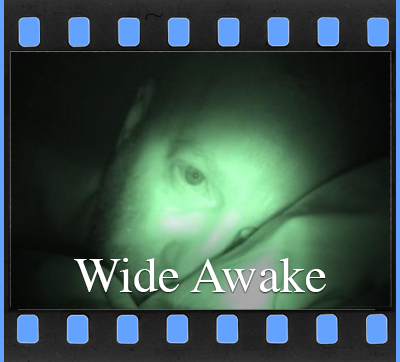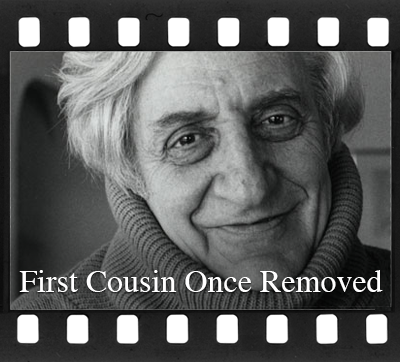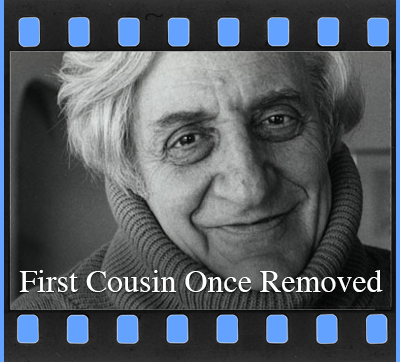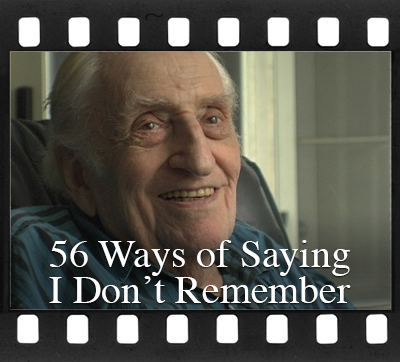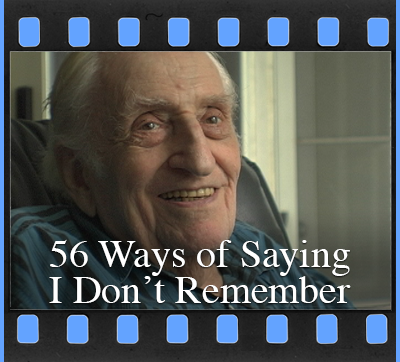Chicago Jewish Star
May 23 - June 5, 1997
FRONT ROW
By Morrie Warshawski Film Critic
What happens when an irresistible force meets an immovable object?
If you've ever pondered that unanswerable question, or if you're just in the mood for a no-holds-barred gloves off, knock-down-drag-out last-man-standing-in-the-ring-wins Freudian sparring match between father and son, then tune in to Alan Berliner's bold new film "Nobody's Business" and watch the sparks fly.
The national premiere airs on WTTW Channel 11 as part of PBS television's P.O.V. series on Tues., June 3, at 10 pm.
I have been a fan of Berliner's work for a decade, having watched him as he created a singular and moving oeuvre using family as its nexus - beginning with "The Family Album" (1986) and his last effort, "Intimate Stranger" (1991).
Berliner brings to all of his work, and to every moment of his work, an intense attention to detail - visual and aural - that has earned him a reputation as one of the most accomplished documentary filmmakers in the US.
But technical skill is only the tip of the iceberg in a Berliner film. What leapfrogs his work to the head of the pack is a combination of passionate involvement, cool/detached intellect when necessary, thematic consistency that mirrors the universal in the personal, and a conscious generosity towards the audience, evidenced by pacing that never lags and a virtual inability to bore the viewer.
A Berliner hour is like a New York minute - a lot happens in a short amount of time, and it's over before you know it.
"Nobody's Business" is the most accomplished and the most personal of Berliner's films. It is simultaneously the funniest and the saddest of his works.
Don't blink or you'll miss some great moments as Alan confronts his reluctant father, Oscar, on the details of the Berliner's family history rooted in the Jewish communities of Eastern Europe.
Alan travels to Poland and visits Jewish cemeteries, interviews scores of relatives throughout the US, makes a trip to the Mormon archives in Salt Lake City, digs up countless family photos and home movies, as well as old documents in a relentless search for his roots.
Along the way, Oscar bucks his son at every turn, loath to reveal anything about the past, and intractable in his insistence that the past and family have absolutely no meaning to him.
For Alan, there is an urgency in exploring his connectedness to others that helps add resonance and meaning to his life - transforming bare facts into metaphor, and teasing order out of chaos.
There is also a desperate need to understand a cathartic event that had a tremendous impact on the young Alan's life - the divorce of his parents 25 years ago.
For Oscar, all this means nothing. Only the present counts. Only actual relations with people Oscar knows and has met, make any difference to him.
Oscar admits to feeling much closer to his World War II buddies than to any of his relatives. As for the grandfather Oscar never knew, a photo elicits this response: "He looks like an old Jew. He means nothing to me."
On the other hand, the film shows scenes of a dotting and smiling Oscar lovingly playing with his new granddaughter.
The film is highly quotable, but I hate to diminish the viewer's pleasure by giving away Oscar's best lines.
Suffice it to say that both Alan and Oscar get in some good licks, punctuated by scenes of boxers in a ring and the sound of the bell as the protagonists circle and spar throughout the film.
At the end of the film, Alan documents Oscar's daily rituals in a small apartment, shut off from much of the world by a loss of hearing and a singular commitment to solitude. "Nobody's Business" is a rare tribute to one man that will continue to resonate in the lives of all those viewers who value the art of filmmaking and the art of being human.
- ◻SYNOPSIS
- ◻ AWARDS
- ◻ FESTIVALS & SCREENINGS
- ✓ WARSHAWSKI ARTICLE
- ◻ RENOV LECTURE
- ◻ NYU - DEC. 5TH, 2010
- ◻ STRANGER THAN FICTION - FEB 12TH, 2011
- ◻ SELECTED REVIEWS
- ◻ PRESS QUOTES
- ◻ JOURNAL EXCERPTS
- ◻ POV Interview
- ◻ EULOGY FOR OSCAR BERLINER
- ◻ CREDITS
- ◻ MEDIA COVERAGE
- ◻ VIEW CLIPS
- ◻ PHOTOS
